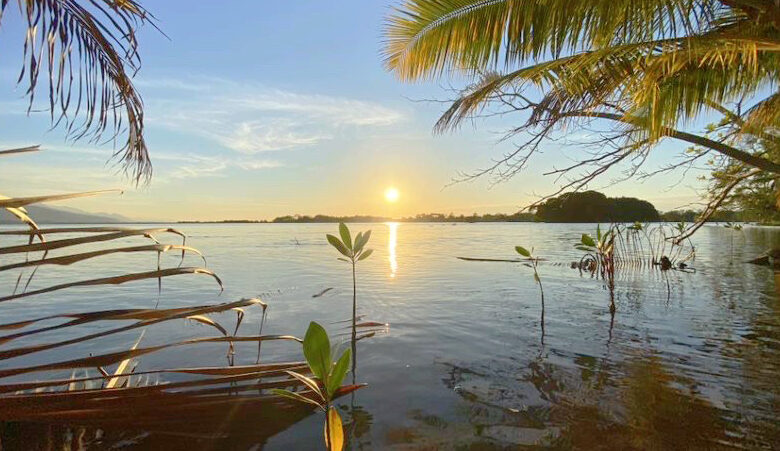
The sun sets over young mangroves off the coast of Honduras. Photo Credit: Centro de Estudios Marinos
Environment HondurasProactivity: Their Key to Save Coastal and Marine Resources
The Central American country of Honduras has revealed a detailed plan of what has been done and, more importantly, what will be done to protect its ocean resources, thus curbing the threats they face very proactively.
The national position – or Postura de país in Spanish – states that “Honduras will promote the protection of coastal wetland ecosystems—mangroves, seagrasses, and marshes… [which] provide adaptation and resilience protection against climate-related threats while also providing habitat for marine biodiversity, supporting fisheries, and providing climate mitigation benefits.”
Honduras’s northernmost waters are part of the Mesoamerican Barrier Reed System – the world’s second-largest barrier reef. To that effect, to better protect both its Atlantic and Pacific coasts, 18 marine and coastal protected areas have already been designated to safeguard biodiversity. The Central American country can also count on mangroves and seagrass beds to sequester and store carbon as part of its Nationally Determined Contributions, which are commitments governments have made to reduce global emissions and the impacts of climate change as part of the Paris Agreement. Honduras’ National Biological Monitoring Board will reinstate and aggregate coastal wetland data into one national database for the first time.



